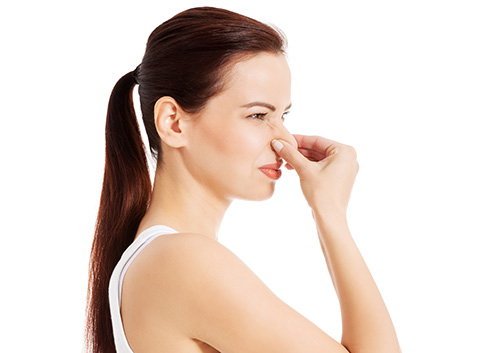I have halitosis. What can I do?
April 11th, 2018

Halitosis is the fancy, scientific word for “bad breath.” Dr. Lowder and our team know there are several reasons why you may have halitosis; let’s look at a few:
- Gum disease (also known as periodontal disease) – There are five main types of gum disease, and each one can range from mild to severe. For example the most common one is gingivitis; it is caused by bacteria in the plaque that has been allowed to build up, usually as a result of poor oral hygiene. A more serious and uncommon type of gum disease is called necrotizing periodontal disease. It is most common in people who have a suppressed immune system.
- Smoking
- Dry Mouth – This can be caused by something as simple as a medication you take.
- Food – Of course, if you eat something that is potent like garlic, it is going to give you bad breath.
- Diseases of the Body – Some diseases such as sinus infections and diabetes, among a few other types of infections, can also cause you to have halitosis.
How to Get Rid of Halitosis
The most obvious answer to how to get rid of halitosis is to practice good oral hygiene, although, depending on the cause of halitosis it may not be that simple. If you have an infection that is causing the halitosis then you may need an antibiotic to clear up the infection and then the bad breath will go away. Here are more tips:
- Brush your teeth after every meal and before bed.
- Floss your teeth. The more plaque you get out of your teeth, the better chance you have of not getting cavities or bad breath.
- Address any medical conditions that are not related to your teeth that can be causing the halitosis.
- Ask Dr. Lowder for a prescription mouthwash that kills bacteria.
Halitosis (bad breath) can be an embarrassing condition to live with, but there are plenty of ways to get rid of it permanently. Start by talking to a member of our team at our Idaho Falls, Rigby, Rexburg, Afton, and Salmon office.





 Website Powered by Sesame 24-7™
Website Powered by Sesame 24-7™